So you want to know how to become a software engineer? It’s a great career choice! In this blog post, we will discuss how to make that happen.
First, let’s discuss what the job of a software engineer entails. As a software engineer, you will be responsible for developing and maintaining software applications. This may include coding, debugging, and testing new features or applications.
Next, let’s talk about what you should study for software engineering. Many people think that you need to have a computer science degree in order to be a software engineer, but that’s not necessarily true. You can learn how to code and develop software on your own with online resources.
After that, let’s talk about programming language selection. If you are just starting out as a software engineer and you already know a language or two, it’s important to choose a language that you already know how to use. If you’re learning how to code for the first time and don’t have any experience with programming, then (spoiler) Python is a good place to start!
Finally, we will talk about how to land your first job. When looking for a job as a software engineer, it’s important to have some experience in the field. If you don’t yet have any coding skills but want to learn how to code, then we will let you know how you might get that experience.
Read on to hear more about how to become a software engineer.

What Does a Software Engineer Do?

What does a software engineer do on a day-to-day basis?
Well, it depends on how many years of experience you have and how senior your role is. A junior software engineer may write code to do a specific task or build a small feature for an app; whereas, a more senior engineer might architect how the product works and how data flows through the app.
In general, though, software engineers are responsible for:
- Writing code that meets the requirements given by a product manager or client
- Testing their own code to make sure it works as expected
- Troubleshooting and debugging code when there are issues
- Updating existing code to fix bugs or add new features
- Working with other members of a team to ensure that all the code is written in an efficient, consistent manner
Required skills for Software Engineers
What are the skills needed for aspiring software engineers?
Problem Solving
The number one skill a software engineer needs, no matter what language they specialize in, is the ability to problem-solve. This involves breaking a problem down into smaller, more manageable chunks, and then finding the right solution.
Learn Quickly
In order to become a software engineer, you need to be able to learn new languages quickly. The software engineering field evolves rapidly and it’s only going to get faster. Good study habits and the ability to apply what you know in another language and translate it into a new one is another high priority.
Solid Math Skills
You also need to have good math skills, as many programming problems are based in mathematics. This really depends on the domain and language you choose, someone going into data science is going to need heavy math skills than a user interface developer.
Logical Thinker
You need to be able to think logically. Code comes in blocks which are simply pieces of logic. You need to be able to put those blocks together so they work in a logical order.
Self-Driven
You also have to be self-driven, especially if you are working as an independent contractor or freelancer. You will have deadlines and milestones that must be met, but nobody is going to hold your hand and remind how far along you should be on a project. It is up to you how long it takes to complete the project and how successful you are at delivering your functionality.
Patience
You also need patience, especially when things go wrong. Inevitably they will and that’s just how software engineering works. You can’t let your emotions get carried away so that way you can still think straight and fix the problem.
Communicate & Collaborate
Finally, you need the ability to communicate and collaborate. Not a whole lot of paying software engineering occurs with one stalwart programming wearing all the hats and doing all the heavy lifting themselves. You need to work with other software engineers, quality assurance, end-users, management, and more. If you are the type of person who is always right, can I ask you to go into another field – say finance?
These are some of the key skills you will need to become a successful software engineer. Do you have what it takes?
What Do You Need to Know For Software Development?
The easiest answer to this is you need to know a programming language, but there’s technical expertise around computer science fundamentals to know about.
Software Engineering Principles
Software developers need to know some basic software engineering principles like how to break down complex problems into smaller chunks that a machine can understand.
Software engineers also need to have an understanding of algorithms, data structures, and how computers store data. Here are some more engineering principles.
Computer Architecture
In order for software engineers to write code that runs fast and efficiently software engineers need to have a good understanding of how computers work.
Software engineers need to understand how much memory is available, how many cores are present on the CPU, and how fast is the CPU speed. All of this impacts how a program runs in terms of performance and efficiency.
Programming Languages
Software engineers need to know at least one programming language, but software engineers also have to know how to read code in a more general sense. This is because you may encounter software that is written in a language that the software engineer may not know.
This means software engineers need to be able to understand how someone else’s code works and also how to debug it when it breaks. This involves applying the basics of what you know about logic and programming and extrapolating into a new language.
Once you have the basics, each additional language builds on your previous knowledge base and it becomes much easier to learn.
Databases
Almost all software these days relies on some sort of database back-end.
This means that software engineers need to know how to interface with databases and how to get the data they want from them.
Some of this is done through writing SQL queries, but there are also other methods depending on how the database is set up.
Computer Networks
In order for your program to communicate with other programs or devices, it needs to use a network.
The most common network used today is the internet, but there are many other networks that software engineers need to know how they work in order for their programs to be successful.
For example, how does your program connect to a web server? How does your program send data over WiFi? All of this requires knowledge about how networks work.
Software Architecture and Software Design
In order for your program to be successful, it needs to have good design and architecture.
This means that the code is easy to read, well documented, performant (fast), efficient (uses fewer resources), and scalable so that it can support more users or devices.
This is something that takes years to learn and is best done through experience.
Software Development Lifecycle
Software engineers need to understand how to take a product from idea to market.
This includes understanding the different phases of the software development lifecycle and what is involved in each phase. Some basics of project management is also nice to have.
It also means knowing how to work with other teams, such as quality assurance specialists, Operations, and Marketing, in order to get your product out the door and into the hands of your users.
Version Control and Branching
Software engineers need to know how to manage version control systems, how to add their code, perform branches, and merge them into the main branch.
Here are two systems that you need to know how to use: Git, and Github.
Github is a website where developers can store their code, as well as collaborate on projects with other developers. Software engineers can also easily share their code with others who will be able to review it for them before they merge the changes into an official project or release.
Git is the software that developers use on their local machines to interact with GitHub repositories.
So, what do you need to know in order to become a software engineer? In addition to knowing how to program, you need to understand how computers work, how networks work, and how to think like a computer. You also need to have an understanding of algorithms, data structures, and database systems. Finally, you need to understand how the development lifecycle works and how to work with other teams in order to get your product out the door.
If this seems like a lot of technical skills, it is. Fortunately, you don’t need to have all this upfront, you can learn a lot of these skills while you are on the job. But the more you learn about each area the better you become at software engineering and the valuable of a software developer you are.
How Hard Is It To Become A Software Engineer?

If you have some ability to think logically and are self-directed enough to study and practice, then it’s not hard to become a software engineer. However, if you want to be the best in your field, it takes a lot of hard work and dedication. Of course, how hard you have to work depends on how much natural talent you have in the first place.
If you are willing to put in a lot of long hours and sacrifice your social life, then it’s quite possible for you to become a software developer without going through traditional channels. There is no shortage of self-taught software engineers who are successfully employed as software developers at companies worldwide. All it takes is a lot of discipline and dedication to doing the amount of studying you need on your own because no one else will be pushing you forward or keeping track of how much time you spend each day studying.
If, however, you’d rather not have to work so hard at self-direction and would like to have a more traditional path, there are plenty of colleges that offer software engineering degrees. You can find schools with great programs all over the world, but you’ll likely need to relocate in order to get the best education.
The bottom line is that becoming a software developer is not hard if you’re willing to put in the effort. Whether you go the traditional or self-taught route, it will require a lot of hard work and dedication, but it’s definitely achievable if that’s what you want to do with your life.
The only thing you need from a hardware perspective is a solid laptop or computer. You could even go to your local library and learn on their computers, as there are a growing number of browser-based IDE’s and compilers like Repl.it.
How Hard Is It To Be A Software Engineer?

This question really depends on where your interests lie, what kind of company or gigs you get involved in, your ability, willingness to learn, and how much effort you put in.
There are many different types of software engineering positions and it’s hard to generalize how difficult they all are. Generally speaking, if you’re looking to become a software developer at a big tech company like Google or Facebook, the competition is stiff and you’ll need strong coding skills as well as top-notch problem-solving abilities.
For other types of software engineering positions, the difficulty level may vary depending on how much coding you’re required to do and how complex the systems are that you’ll be working on. For example, a front-end developer who is responsible for developing user interfaces and interactions may not need to know as much coding as someone who works on the back-end, where they’re responsible for developing and managing the functionality of a system.
That said, most software engineering positions will require you to have a strong understanding of how computers work and how to code. So if you’re looking to become a software developer, make sure that coding is one of your main strengths.
In addition, you will spend a lot of time in front of a computer screen, so if you have trouble sitting for long periods of time you will want to invest in the best office chair and best monitor for programming you can afford in addition to your computer.
What Qualifications Do You Need To Be A Software Engineer?

In order to get a job as a software engineer, you will generally need one of the following:
- 4 year computer science or related degree from a college or university
- Graduation from a programming bootcamp
- Demonstration of your completion of various software engineering courses – MOOCs, paid subscriptions, and more – and projects where you can show your skill in programming.
- Previous work experience in programming or programming during a graduate degree or job which wasn’t computer science related.
- A bouquet of certifications in programming languages.
- You can also qualify for software engineering jobs by testing well on sites where they only concern themselves with your skill.
How to Acquire Software Engineering Skills
So how do you acquire these skills when you are starting from almost nothing? Go back to school and get a computer science degree?
Yes, that’s one path and it used to be the only way to get on a software engineering career path, but these days software developers take many paths – including those without getting a degree – to get where they land their first job.
The ways of learning all these technical skills is: college or university, coding boot camps, massively open online courses (MOOCs), books, and online tutorials. You can find out more on our post on how to learn to be a programmer.
What Language Should I Learn To Become A Software Engineer?

There’s a few things you need to think about when choosing a first programming language.
- how easy it is to learn how easy the language is to pick up
- how much support/resources are available for learning that language?
- how many people use it?
- how popular is that language?
- Do you have a community of people who can support you when you get stuck on something or need help? Larger communities mean your questions will get answered quicker, while specialized languages with small communities might take longer or leave you to figure out answers completely by yourself.
- What do you want to do as a software engineer? If you want to do data science, then Python, R, or Julia are the languages to learn. If you want to do Front end web development then learning JavaScript is a must. If mobile is more your jam, then java for android or Swift are good choices. And if you want to do enterprise applications, Java is a pretty safe bet. Python is a pretty safe general utility language right now.
- Is demand for it increasing or decreasing? Go to Google Trends and put the language name in there – are searches increasing or decreasing? A declining number of searches may mean there’s a declining interest or demand for that language.
- After you have been in a language for a little bit, ask yourself if you see yourself enjoying this language for the next 5-10 years? If not, then it is a good time to reevaluate the language you are learning. (But don’t skip around and learn 10% of 6 languages. It’s better to have 40% of one language than 10% of 6 or more.)
The most important thing to remember is that there are no magic languages out there that will make you instantly successful as a software engineer. Focus, just pick one, and start learning how to code. The language you choose will not make or break your career because you will likely need to learn many – (I have professionally worked with 6 or more!), so don’t spend too much time mulling over this decision. Pick something that sounds interesting and get started!
Landing A Job As a Software Engineer

If you have a formal education with a bachelor’s degree in computer science or a certification from a coding Bootcamp then you already have a foot in the door.
If you do not then you will need to build a portfolio of projects which demonstrate your programming skills and knowledge of software engineering skills.
Building A Portfolio of Projects
Your portfolio should have a good mix of projects – some that are personal and others that are for work or school. Each of the projects should show you have a grasp of the software development process and project management and they should have functionality that is complete.
Personal Projects: These can be anything you want, as long as software solutions show your coding skills off. Maybe you built a simple game, created a website, or made an app. I suggest an automatic support system or a bug tracker. Web developers should definitely have a website to demonstrate their skills.
Work/School Projects: These should be projects that you worked on as part of a team or individual projects as software engineering students or coding Bootcamp. They should show how you applied your coding skills and knowledge to solve a problem.
Interviewing For A Job As A Software Engineer
The interview process for software engineer jobs can vary quite a bit from company to company, but there are some general things that will happen during an interview.
First, you will usually have a phone screen with the recruiter or someone from HR. This is mostly to see if you are qualified for the position and to weed out candidates who are not a good fit. If you pass this round then you will be invited for an in-person interview.
The in-person interview will usually have a few parts to it. First, there is an initial technical screen with a software developer from the company. This will be followed by more technical interviews and then finally some sort of take-home challenge or exercise.
The Technical Screen
This may involve you writing code on a whiteboard or using Google Docs to write code. You may be given a problem and need to explain how you would solve it as well as how you would implement your solution. If there isn’t a coding problem then expect detailed technical questions about the language you have chosen.
The Technical Interviews
For these interviews, you will most likely have coding challenges that test how well you know the fundamentals of software engineering, such as data structures and algorithms. These are usually done on a whiteboard or with Google Docs. At larger and more high-profile tech companies you will have a battery of these over the course of a day or a couple of days.
Take Home Challenge/Exercise
This will usually consist of some sort of coding challenge that you must complete at home and then present how you approached the problem during an interview. It may also be to implement a part of an existing system. For example, how would you add search functionality to a website?
Wrapping Up How To Become A Software Engineer
We hope you found the above information on how to become a software engineer helpful. As you have probably realized, many software engineers take many different paths to get to where they are. If you are still looking for more information, be sure to check out our other blog posts on the subject. And don’t forget to sign up for our email list so that you can stay up-to-date on all of our latest content.
